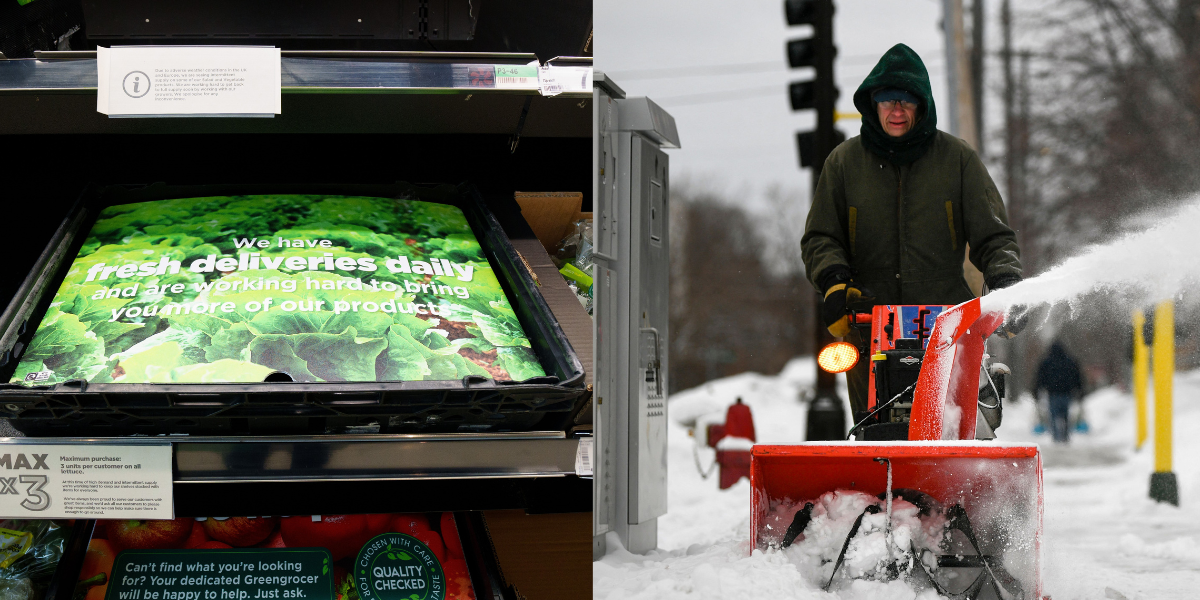These Surprising Items In Your Kitchen Could Save You In A Natural Disaster

If you’ve been following the viral news story of Elvis Francois, you might be starting to think a little harder about the condiments you keep stocked in your pantry. If you're not in the loop, Francois—a sailor from Dominica—was recently lost at sea for 24 days after his boat was swept away off the coast of St. Maarten, in the Caribbean. When Heinz found out that Francois survived those 24 days eating a diet that consisted entirely of ketchup and spices, CBS reports that company initiated a social media search party to find him so that they could gift him a new boat with a navigating system.
Thankfully, Francois has reportedly been found, and his new navigation system will hopefully ensure that he never gets lost at sea again. However, Francois’s story might have you wondering: What condiments would be best to have around in case of an emergency?
Of course, whether you find yourself lost at sea or, more likely, sheltering at home during a storm, your “Plan A” ideally won’t be living off of condiments. However, given that condiments usually stay in our pantry longer than other groceries, they might be the only thing you have on hand if emergency weather catches you by surprise.
If you do find yourself in this situation, which condiments would be the best to have on hand? Well, a quick look at the nutritional value of some kitchen staples might make you inspired to stock up a bit more strategically the next time you’re at the grocery store.
When it comes to deciding which condiments are “healthiest,” Healthline advises seeking out condiments with protein, healthy fats, and fiber—all of which can keep you full in an emergency. Here are of the most nutrient-dense condiments, according to Healthline:
Pesto offers 8 percent of your daily recommended zinc intake per serving.
Tahini and hummus are both packed with plant-based protein.
Kimchi and Sauerkraut, both vegetable-based condiments, can provide both nutrients and probiotics due to being fermented.
Salsa and pico de gallo are also packed with nutrients.
Nut butters provide protein as well as magnesium.
Of course, there’s a wide range of health benefits to be derived from many condiments—with other foods like mustard (anti-inflammatory), olive oil (healthy fats), and lemon juice (full of Vitamin C) also making their way onto the list.
WebMD does note that, when it comes to nutritional value, not all condiments are created equal. Many of them are packed with high levels of salt, saturated fats, and sugars. This means that a homemade ketchup might offer a lot more mileage for you than a sugar-packed store-bought brand. Overall, WebMD says to seek out condiments that contain fruit- and vegetable-based ingredients, and to limit your intake overall. So, while condiments might keep you full in a pinch, you shouldn’t get any ideas about starting a condiment-centric meal plan.
Of course, when push comes to shove, any ingredient that can make you feel satiated could help you through a time of need. And given most condiments’ purpose of adding flavor to our meals, almost any unexpired bottle in your fridge will probably seem appealing when the going gets tough.
So, go refill that missing mustard bottle and pesto jar, and maybe take some extra care when reading the nutritional values on the label. But, at the end of the day, make sure to prepare with proper sources of non-perishable foods and water if an emergency is on the horizon.
You Might Also Like

